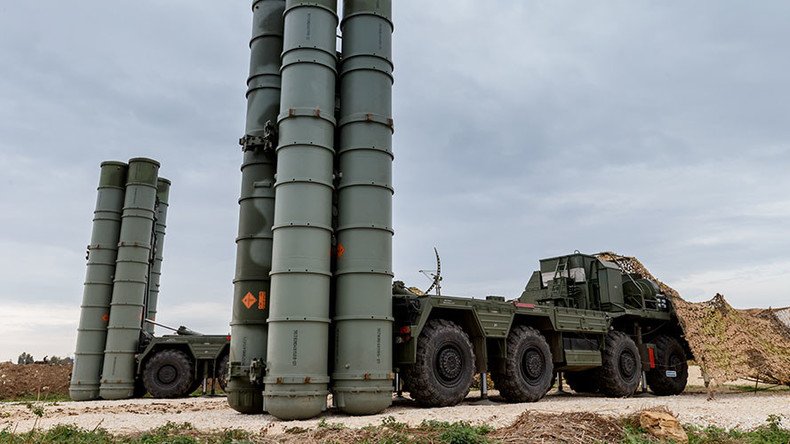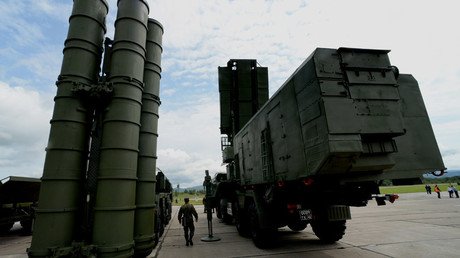Ankara in ‘final stage’ of buying Russian S-400 anti-missile system

Turkey’s talks with Russia to purchase the advanced S-400 surface-to-air missile system have reached the final stage, the country’s defense minister said. He added that other NATO nations have not offered Turkey a viable alternative to the Russian system.
“It is clear that Turkey needs a missile defense system but NATO member countries have not presented an offer which is financially effective," Fikri Isik told a news conference on Friday.
“Work on the S-400 has reached a final point,” he added. “But the final stage does not mean 'let's sign a deal tomorrow morning.'”
The negotiations between Turkey and Russia on a long-range air defense system deal were revealed in November last year. Back in 2015, Ankara walked out of a $3.4 billion contract for a similar Chinese system, FD-2000, the export version of HQ-9. The Chinese bid had won a 2013 tender, but Turkey canceled the agreement, citing Beijing’s unwillingness to transfer technology along with the equipment.
Turkey’s choice of Chinese weapons sparked concern among other NATO members, primarily because the system was incompatible with the equipment used by the bloc. Isik confirmed on Friday that Turkey was not planning to integrate the Russian S-400 system into NATO air defenses.
Turkey is seeking a comprehensive national air defense system, but lacks the technical expertise to produce the constituent parts domestically. In the past it has relied on other NATO allies such as the US and Germany to deploy their long-range anti-aircraft missiles in times of crisis.
In 2015, Ankara was angered by the US decision to withdraw Patriot missiles from Turkey’s border with Syria – a move that some speculated was meant to express Washington’s irritation with Turkish attacks on America’s Kurdish allies in Iraq and Syria.
The S-400 is one of Russia’s most advanced weapon systems. It can shoot down aircraft at a range of 400km and ballistic missiles at a range of 60km, as well as engaging 36 targets simultaneously. A battery is currently deployed in Syria, defending the Russian airbase near Latakia.













